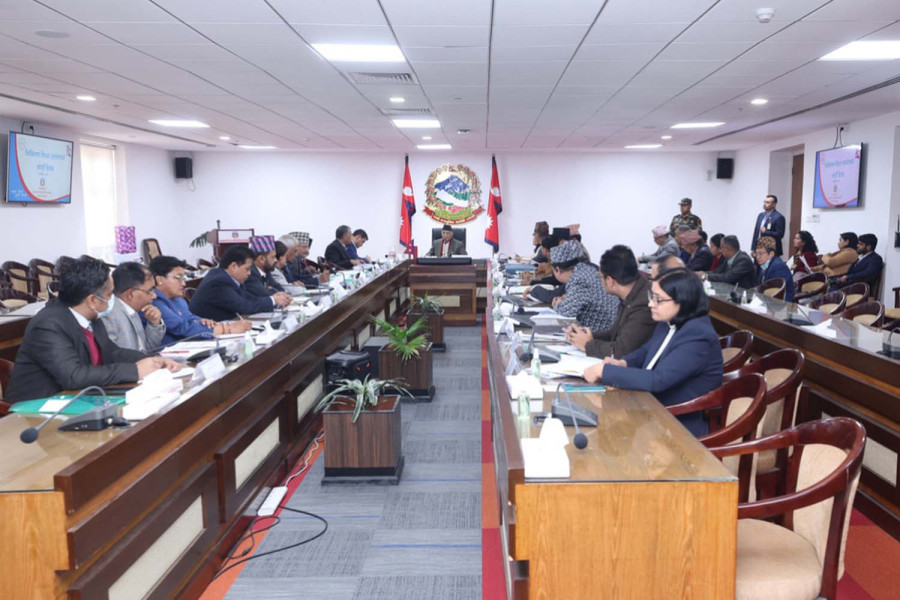National
Government hikes protesting resident doctors’ monthly stipend to Rs48,737
Doctors welcome decision saying residents are the backbone of medical colleges.
Post Report
The Medical Education Commission has finally agreed to fix stipends of the post graduate students from private medical colleges on par with that of government-owned colleges.
Prime Minister KP Sharma Oli, as the chair of the commission, called an emergency meeting of the commission to decide on stipends after resident doctors started halting non-emergency services. Currently, postgraduate students (MD/MS) from government-owned institutions get Rs48,737 per month, which is equivalent to the salary of a gazetted officer. However, private medical colleges have been paying the same level of students around Rs20,000.
“Yes the commission has fixed Rs 48,737 for all the post graduate medical students,” Bidya Bhattarai, minister for education and co-chairperson at the commission, told the Post. Though representatives of private medical colleges had asked to wait until the working procedure was developed, others pushed for an immediate hike in the stipend.
“The decision was taken after consultations with stakeholders and considering recommendations from a study committee,” the prime minister's office (PMO) wrote on the social media platform, X.
The commission has also decided that students, who refuse to sign a two-year post-study work bond, will have to pay Rs2.3 million as fee to their respective colleges.
The Nepal Medical Association, an umbrella body of medical doctors, has welcomed the decision. Issuing a statement, it has claimed the hike in stipends will bring positive changes to medical service delivery. The postgraduate students, who are the first to attend the patients, are the backbone of medical colleges.
These students have long been complaining that, despite working for more than 10 hours a day, they receive minimal pay.
For months, the agitating students had demanded that the commission refrain from allocating post- graduate seats to medical colleges, and from conducting entrance examinations until their demands were met. However, the commission pressed ahead with the seat allocations and called for applications for the entrance examinations without addressing their demands.
Education Minister Bhattarai, and Pradip Paudel, the minister for health and population as well as co-chair of the commission, had earlier proposed that students be paid Rs25,000 in the first year and the stipend be increased to Rs35,000 in the third year. The resident doctors rejected the decision saying it was an insult.
As a result, they have been boycotting non-emergency services for three hours every day while also staging demonstrations at Maitighar, near the government’s central secretariat Singha Durbar.
In addition to the stipend increase, their other demands include a maximum of 80 hours of duty per week, leave after each 24-hour shift, maternity leave, 21 days of general leave, and seven days of study leave per year. They also have demanded weekly leave.
The resident doctors had staged a similar protest two years ago. Though it ended with an agreement to implement their demands, the deal was never carried out due to reluctance from private medical colleges.
The commission has allocated 1,103 post graduate seats for enrollment in different medical colleges for this year. The state funded institutions including Tribhuvan University Teaching Hospital, BP Koirala Institute of Health Sciences, National Academy of Medical Sciences hold the most of the seats.




 21.13°C Kathmandu
21.13°C Kathmandu













